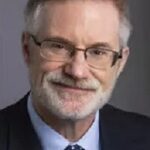CCICADA Fall Retreat – October 31, 2025
CCICADA Fall Retreat – October 31, 2025
Date/Time Friday, October 31, 2025 12:00 – 1:30 pm
Where: Lounge (Room 401), Computing Research & Education Building (CoRE), Busch Campus, Rutgers, the State University of New Jersey, Piscataway, New Jersey
Lunch will be served at 12 noon with a program featuring a terrific, invited speaker, Mark Frank from the University at Buffalo, at 12:30 pm. Professor Frank has done amazing work in detecting whether people are lying or telling the truth and in training law enforcement to do so, as you can see from his Bio below.
Attendance is for CCICADA members and invited guests. If you have been invited, please RSVP to Nicole Clark at [email protected]. If you would like to invite a colleague or student or apply for an invitation, please let Nicole know.
Guest Speaker: Professor Mark Frank, University at Buffalo.
Title: Deception, human behavior, and technology: Dispatches from the front lines
Abstract:
Security contexts involve observing human beings and trying to ascertain hostile intentions, including efforts to deceive security personnel. Although there is no “Pinocchio” response that perfectly predicts deception, there are some clues that can be helpful within certain contexts. This presentation will discuss the psychology of human deception, present findings on associated behaviors, and then examine a series of efforts to use technology to detect reliably many of the subtle signs of deception, including thermography, automated facial expression analysis, and laser doppler vibrometry. Despite these efforts, one thing that seems clear is that the human component remains essential in any use of technology, from both the point of view of the external validity of the behaviors elicited but as importantly the efforts to incorporate findings and technology to the people who analyze those behaviors. The talk will conclude with speculation about the use of technology as an adjunct to the human decision maker in actual security settings, including briefly how artificial intelligence may help or hinder efforts.
 About the Speaker:
About the Speaker:
Mark G. Frank is a professor in the Communication Department at the University at Buffalo, State University of New York, where he served as chair from 2015-2021, and since then has been the Faculty Athletic Representative. He was born and raised in Buffalo and is a UB Alumnus (Psychology). Dr. Frank received his Ph.D. in Social Psychology from Cornell University in 1989, and afterward he received a National Research Service Award from the National Institute of Mental Health to do postdoctoral research in the Psychiatry Department at the University of California at San Francisco Medical School. In 1992 he joined the School of Psychology at the University of New South Wales in Sydney, Australia, where he worked for 4 years until he joined the Communication Department at Rutgers University in New Jersey. In 2005 he went full circle and accepted a position offered by the University of Buffalo Communication Department, where he created and directs the Communication Science Center. He has published research papers on facial expressions, emotion, interpersonal deception, and also violence in extremist groups, and in 2016 won the SUNY Chancellor’s Award for Excellence in Scholarship and Creative Activities. He has had research funding from The National Science Foundation, US Department of Homeland Security, and the US Department of Defense to examine deception and hidden emotion behaviors in checkpoint, law enforcement, and counter-terrorism situations, as well as aggression in extremist groups. He is also the co-developer of a patented automated computer system to read facial expressions, for which he won a Visionary Innovator Award from the University at Buffalo. He has used these findings to lecture, consult with and train virtually all US Federal Law Enforcement and Intelligence Agencies, as well as local/state and select foreign democratic countries. He is also one of the original members of the FBI Behavioral Science Unit’s Terrorism Research and Analysis Project. He has presented briefings on deception and counter-terrorism to the US Congress as well as the US National Academies of Sciences. He has also given workshops to the US Federal Judiciary, various state Courts, and foreign judges and magistrates. He was selected to present 12 recorded lectures for the Great Courses series called Understanding Nonverbal Communication, and was recently a featured expert on the Curiosity Stream 6-part series called Inside the mind of a con artist. Finally, he has appeared in over 100 print, radio, and television appearances to talk about his work, including The New Yorker Magazine, Time Magazine, New York Times, Wall Street Journal, Smithsonian, CBS Evening News, CNN, Fox News Channel, CNBC, National Public Radio, The Learning Channel, the Discovery Channel, the Oprah Show, the CBC, BBC, London Weekend Television, the Australian Today Show, the Sydney Morning Herald, and ABC Radio National, among others.


Leave a comment